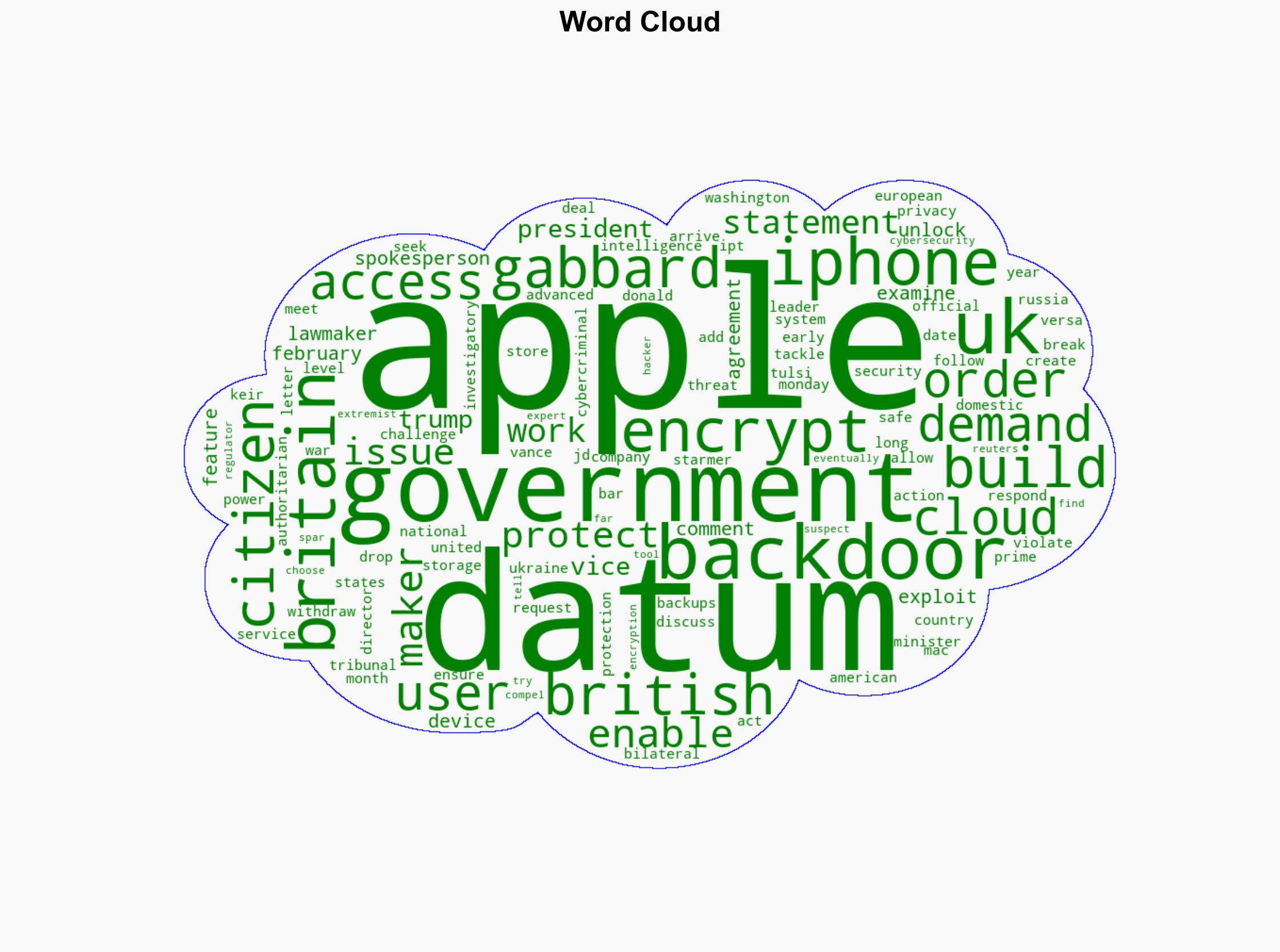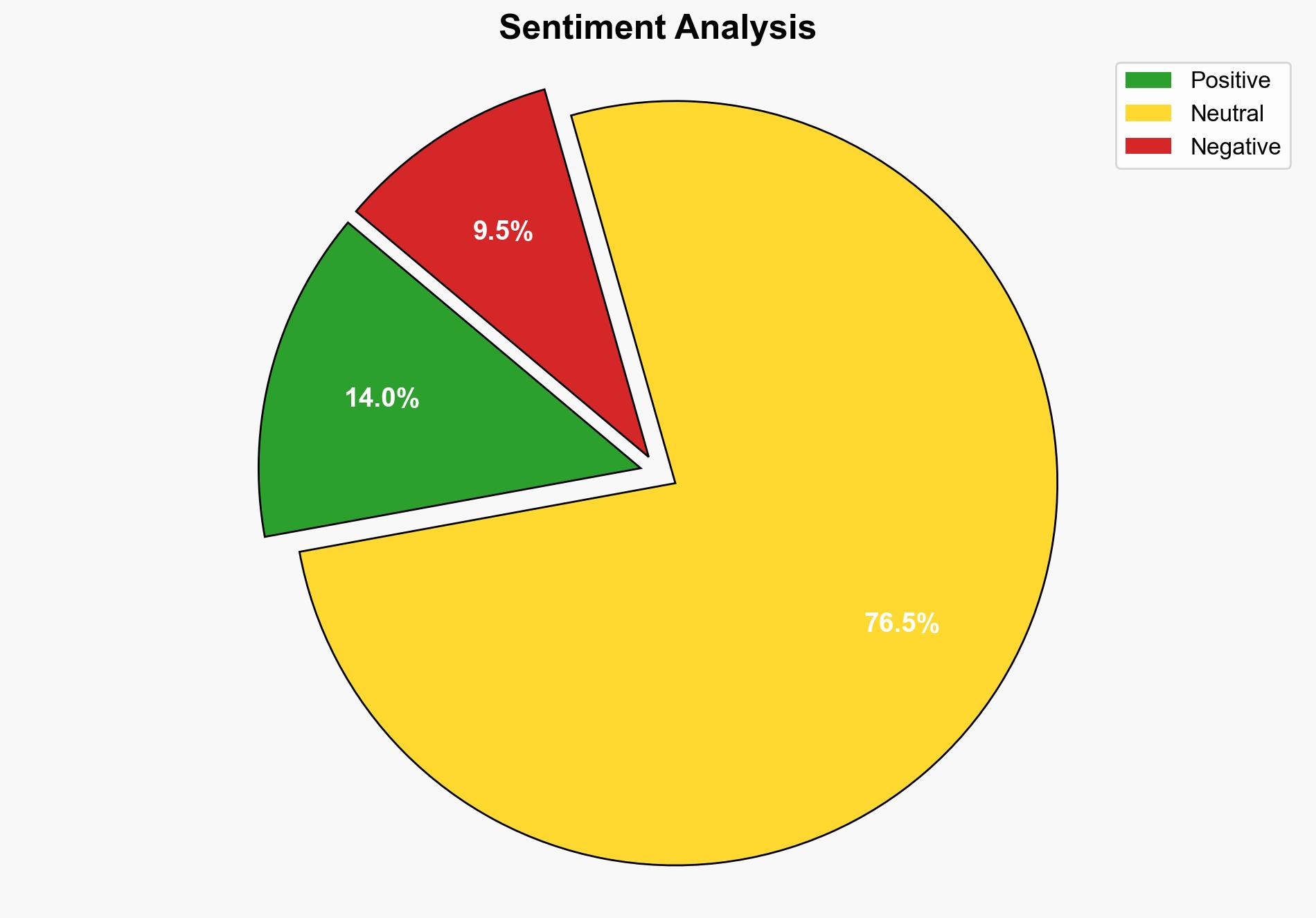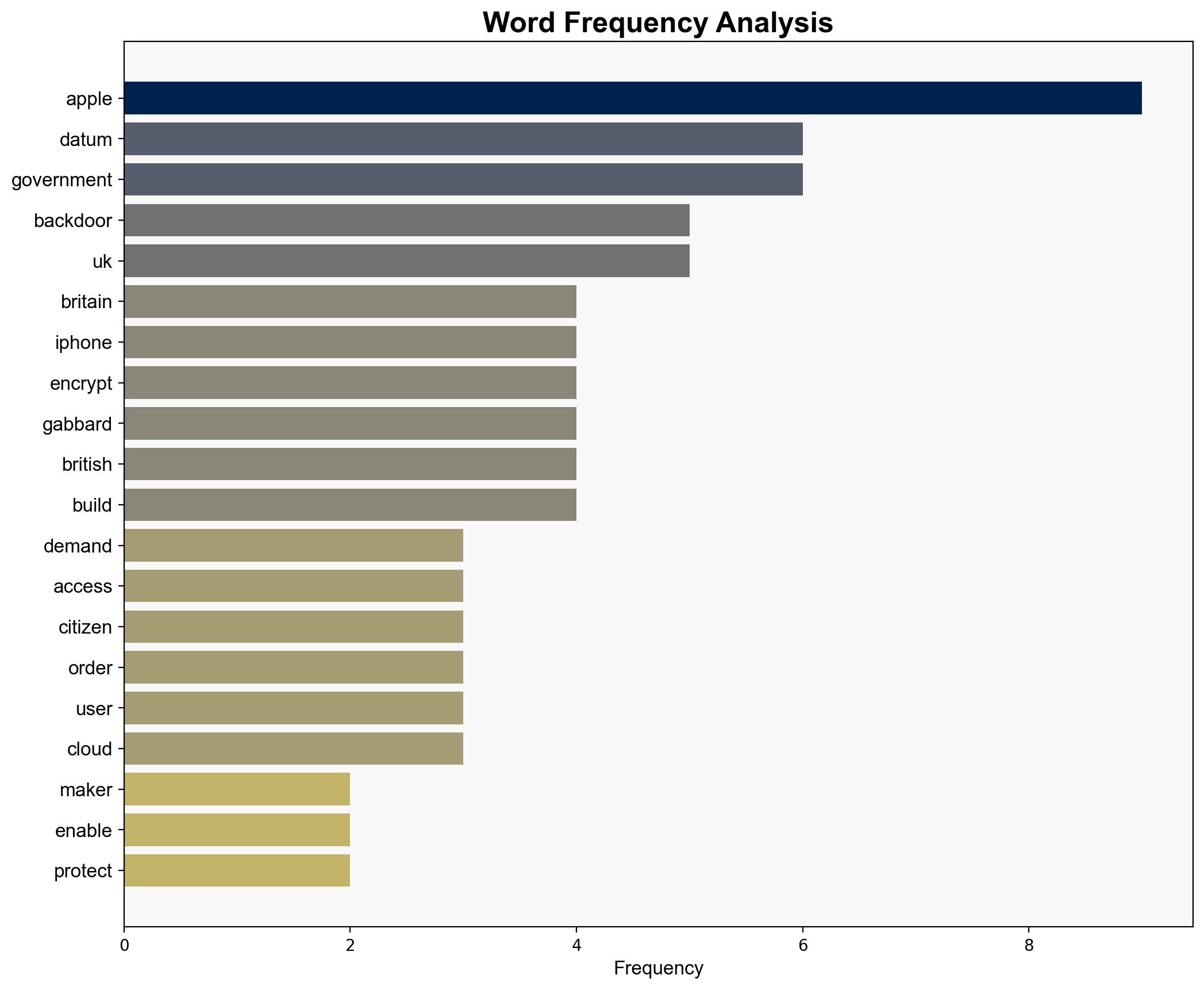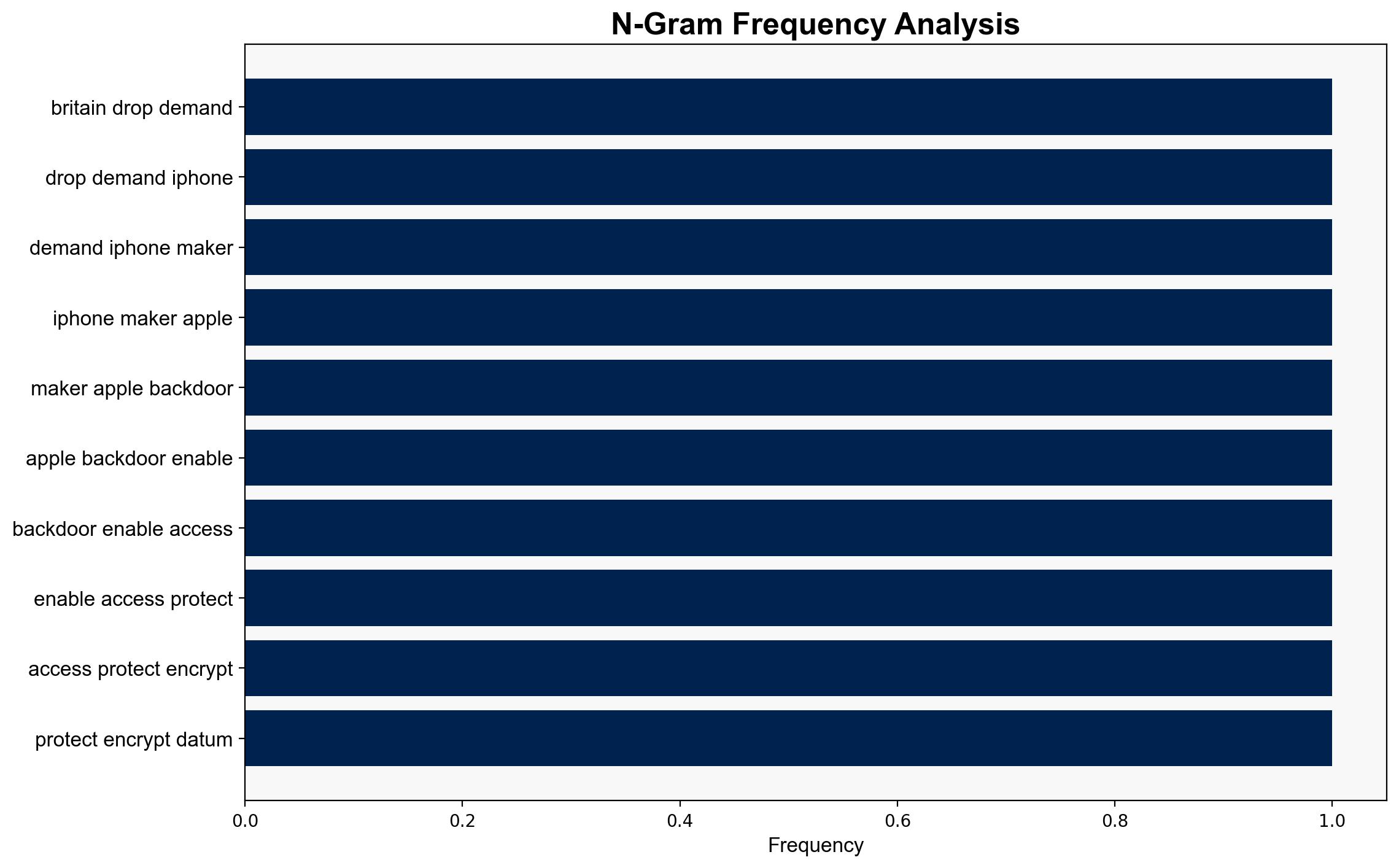UK agrees to drop encryption ‘backdoor’ mandate for Apple – iTnews
Published on: 2025-08-19
Intelligence Report: UK agrees to drop encryption ‘backdoor’ mandate for Apple – iTnews
1. BLUF (Bottom Line Up Front)
The UK has decided to drop its demand for Apple to create an encryption backdoor, a move likely influenced by diplomatic negotiations and cybersecurity concerns. The most supported hypothesis is that the decision was driven by international pressure and potential security risks associated with backdoors. Confidence Level: Moderate. Recommended action is to monitor further developments in UK-US cybersecurity policies and assess potential impacts on international data privacy standards.
2. Competing Hypotheses
1. **Hypothesis A**: The UK dropped the backdoor mandate due to international diplomatic pressure, particularly from the US, to align with global cybersecurity standards.
2. **Hypothesis B**: The decision was primarily motivated by internal assessments of the security risks posed by backdoors, which could be exploited by cybercriminals and authoritarian regimes.
Using ACH 2.0, Hypothesis A is better supported by the involvement of high-level diplomatic discussions between the UK and US, as well as the timing of the decision following these meetings. Hypothesis B is plausible but lacks direct evidence from the source.
3. Key Assumptions and Red Flags
– **Assumptions**: It is assumed that the UK values international relations with the US and other allies over unilateral cybersecurity measures. Another assumption is that the UK government has a comprehensive understanding of the technical risks associated with encryption backdoors.
– **Red Flags**: The lack of a direct statement from Apple or detailed comments from the UK government leaves room for uncertainty about the true motivations behind the decision.
– **Blind Spots**: Potential undisclosed agreements or concessions made during diplomatic talks that could influence future cybersecurity policies.
4. Implications and Strategic Risks
The decision to drop the backdoor mandate could set a precedent for other countries facing similar demands, potentially leading to a more unified international stance on encryption and data privacy. However, it may also embolden cybercriminals if perceived as a weakening of government surveillance capabilities. Geopolitically, it could improve UK-US relations but strain ties with countries advocating for stricter cybersecurity measures.
5. Recommendations and Outlook
- Monitor UK and US cybersecurity policy developments to anticipate shifts in international data privacy standards.
- Engage with cybersecurity experts to assess the technical implications of the decision and prepare for potential cyber threats.
- Scenario Projections:
- Best Case: The decision leads to stronger international collaboration on cybersecurity standards.
- Worst Case: Increased cyber threats due to perceived vulnerabilities in encryption policies.
- Most Likely: Gradual alignment of UK cybersecurity policies with international norms, with ongoing diplomatic negotiations.
6. Key Individuals and Entities
– Tulsi Gabbard
– Donald Trump
– JD Vance
– Keir Starmer
– Apple
7. Thematic Tags
national security threats, cybersecurity, counter-terrorism, regional focus





